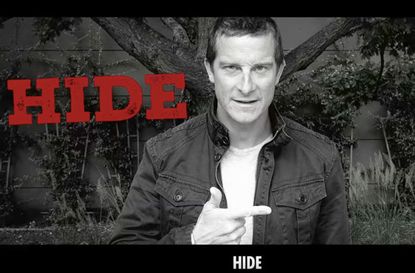Experts urge for 'run, hide, tell' advice for terrorism attacks to be included in national curriculum at schools and colleges
They're also telling children not to film the events


Experts are urging the government to include 'run, hide, tell' advice in the national curriculum, so children in school and college can learn what to do in the case of a terrorist attack.
Counter Terrorism Policing UK have launched a version of the safety advice for 11 to 16 years olds, which includes a 'run, hide, tell' emoji, as well as a video featuring the likes of TV star Bear Grylls, England footballer Jamie Vardy, and Olympian Jade Jones.
http://www.youtube.com/watch?v=s3y51Vd4kJ4
Police chiefs say giving this advice to children in classrooms could save lives, and hope it could be included in the national curriculum.
The campaign aimed at young people comes after a number of attacks in the UK this year, which included the tragic events after an Ariana Grande concert in Manchester, where 22 people lost their lives - including seven children.
Met Deputy Assistant Commissioner Lucy D'Orsi, who's the national policing lead for protective security, said that even though discussing terrorism with young people can be scary, it's important to make them aware of the advice that could save their lives in the case of an attack.
'The atrocities in London and Manchester have sadly resulted in some of the youngest victims of terror this country has ever seen, and if we are able to teach children to act in a way which could potentially save their lives then it is our responsibility to do so,' she said.
GoodtoKnow Newsletter
Parenting advice, hot topics, best buys and family finance tips delivered straight to your inbox.
She also urged everyone to not film terror attacks, and revealed authorities are concerned that it could keep them from running away from danger.
'We are particularly concerned when we see people - young and old - using their mobiles to film scenes when they should be moving away from the danger', she said.

The NSPCC report they've had 300 contacts from young people who feel anxious about terrorism
The experts' warning to teach the safety advice to children follows official numbers from the National Society for the Prevention of Cruelty to Children, who say they have received more 300 contacts from young people who are anxious about terrorism since April.
The head of helplines at the charity, John Cameron, said adults should listen to children's concerns but reassure them that these occurrences are rare.
'Although these conversations might be difficult, the spate of devastating events means that they cannot be brushed under the carpet and we all have a duty to help every child stay safe', he said.
Do you think the advice should be taught in schools? Let us know in the comments!
Trusted, informative, and empathetic – GoodToKnow is the ultimate online destination for mums. Established in 2007, our 15-year-strong archive of content includes more than 18,000 articles, 1,500 how-to videos, and 7,000 recipes.
-
 I tested the Lakeland Dual Basket air fryer and it made midweek family cooking a breeze
I tested the Lakeland Dual Basket air fryer and it made midweek family cooking a breezeYou can’t go wrong with the dual basket air fryer by Lakeland complete with easy-view windows to ensure burnt food is a thing of the past…
By Jessica Dady Published
-
 Reframing one simple habit could get your sex life back on track after having a baby, new research shows
Reframing one simple habit could get your sex life back on track after having a baby, new research showsMany parents struggle to get their sex life back on track after having a baby, but new research has shown how one simple habit could make all the difference.
By Ellie Hutchings Published